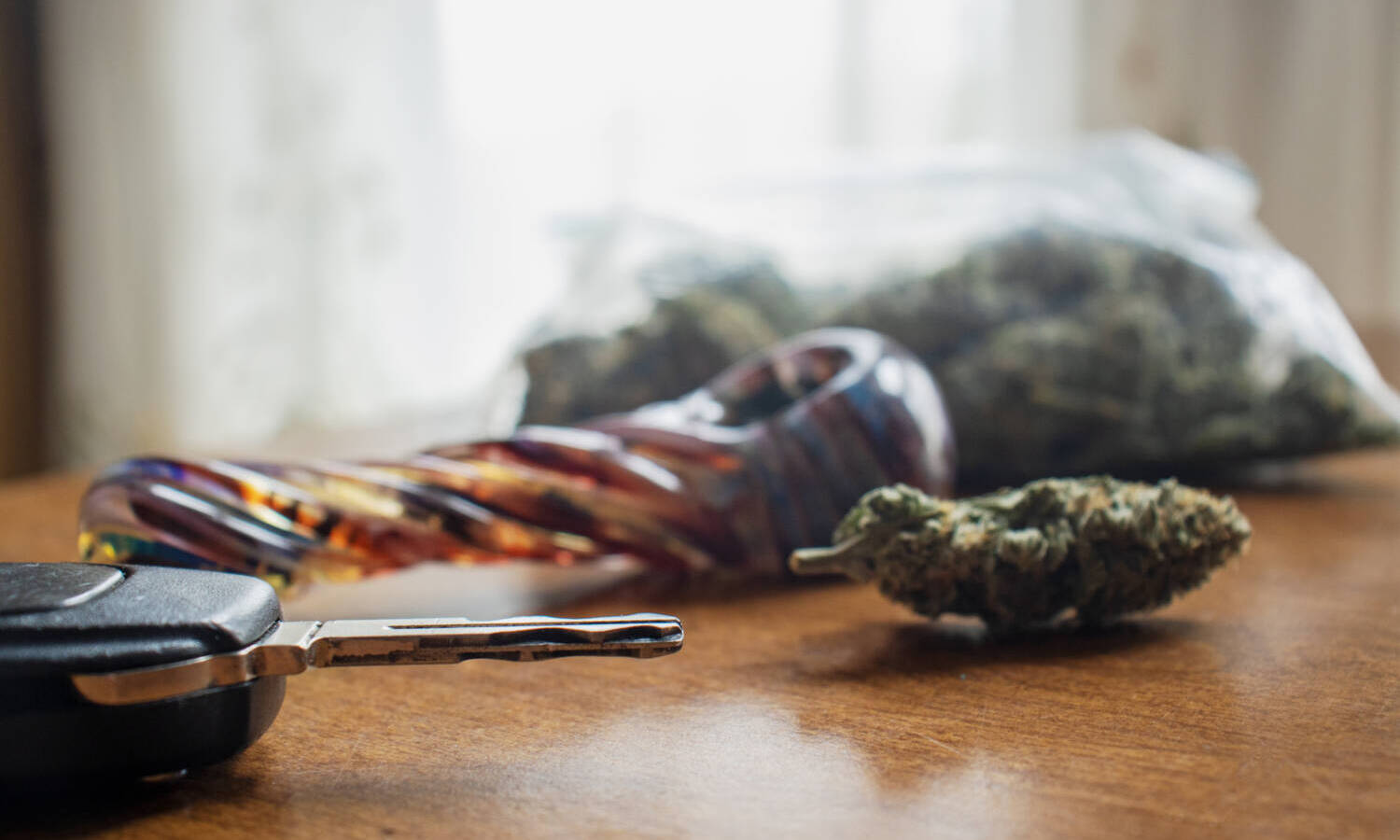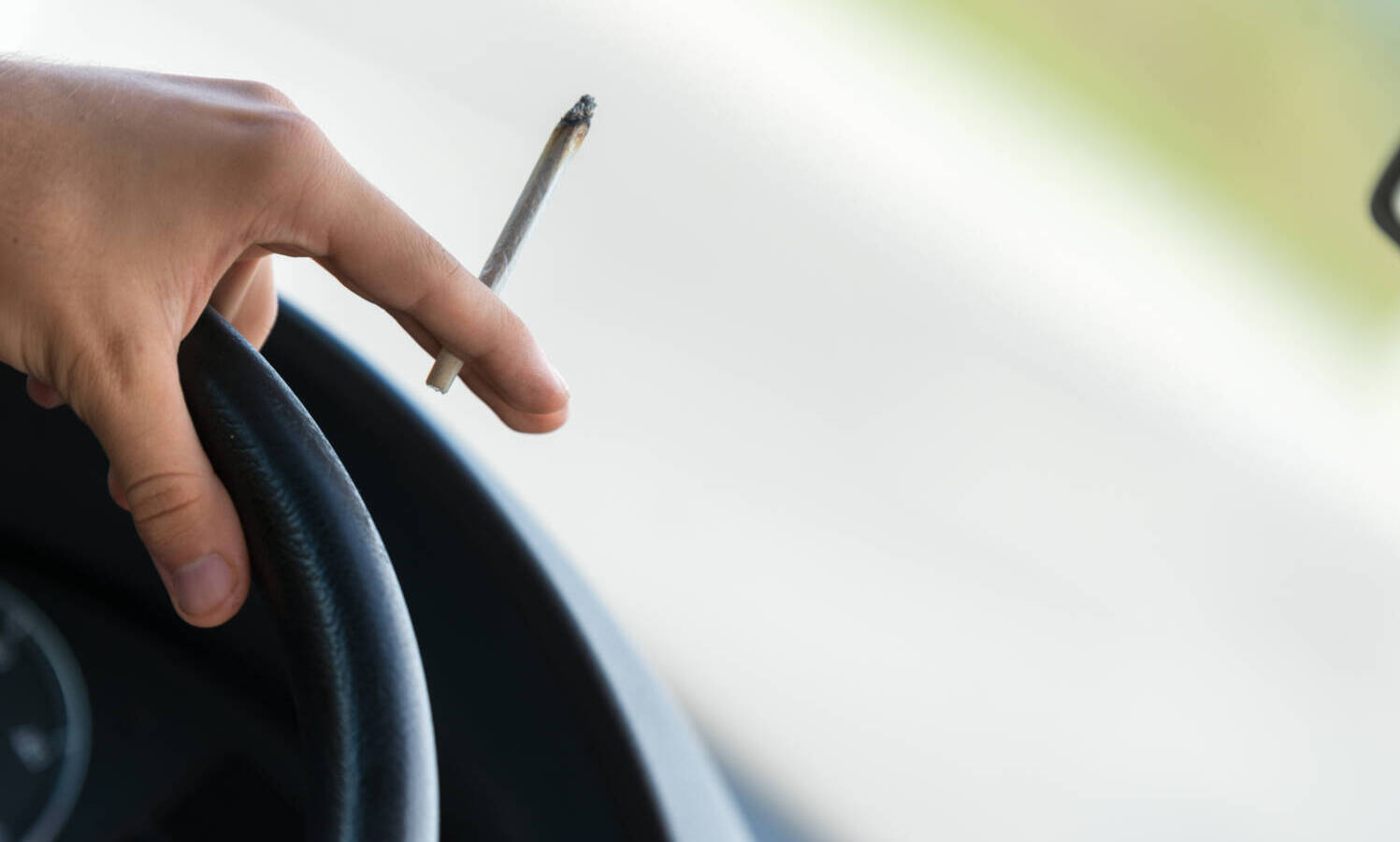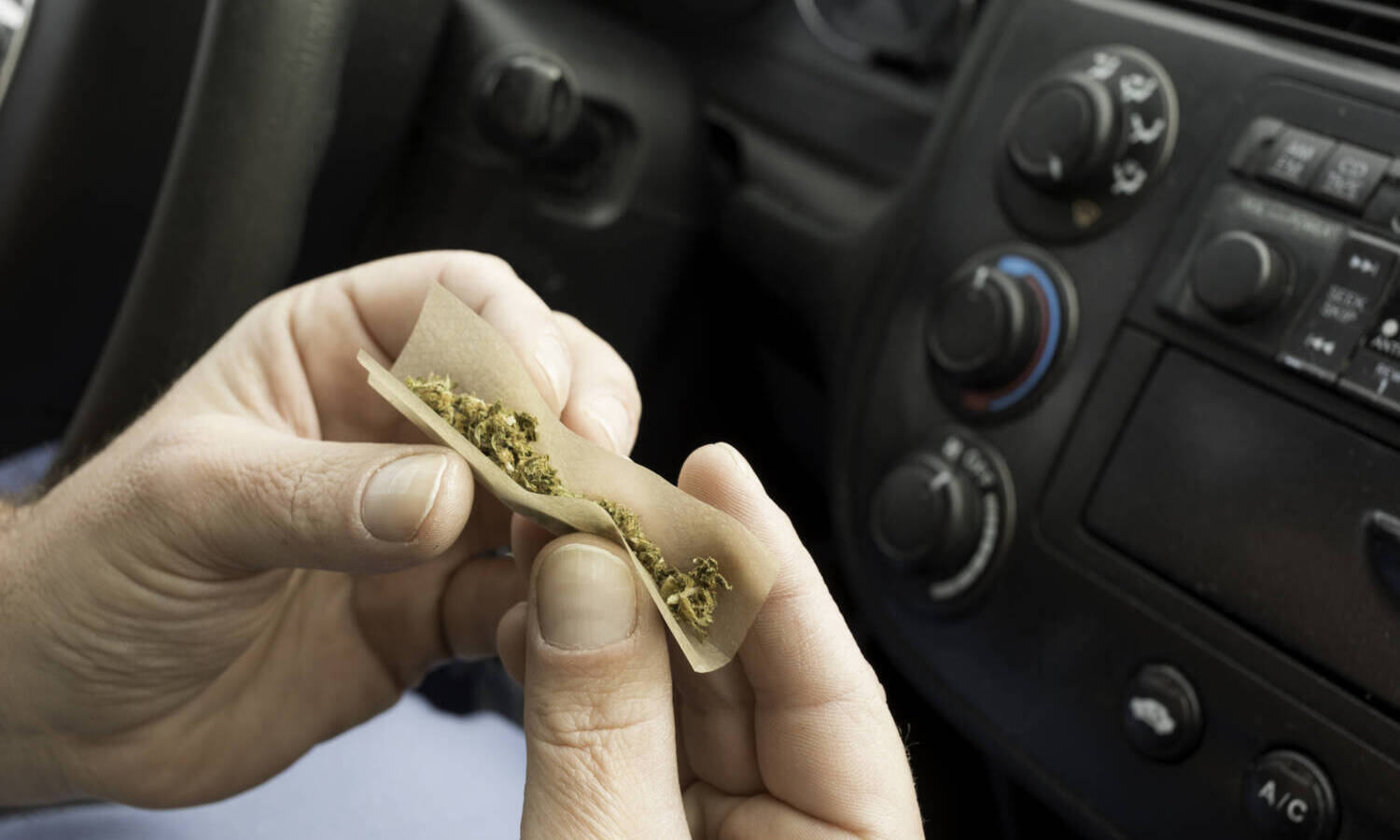Government
State-By-State Guide To Marijuana Related DUI Rules And Regulations

Currently, saliva, urine or blood testing are the most popular ways to find marijuana in the system. That being said, some states have started piloting oral fluid pilot projects.
DUID (driving under the influence of drugs) appears to be a contributing factor in crashes involving impaired driving. According to the National Highway Traffic Safety Administration’s 2013–2014 National Roadside Survey, there was a decline in drivers’ alcohol consumption from 1973 to 2013-2014. On the other hand, there was a rise from 8.6% in 2007 to 12.6% in 2014 in the proportion of night-time weekend drivers who screened positive for cannabis use.
A study carried out in 2013-2014, concentrated on drugs that could potentially impair driving skills, such as, prescription, over-the-counter, and illicit drugs and found that 8.3% of weekend night-time motorists screened positive for alcohol (a blood alcohol level of over .005) and 1.5% had a blood alcohol level of.08 or greater, 22.5% had a positive drug oral fluid and/or drug blood test. The study does note that impairment is not always present when drugs are present. NHTSA reports that marijuana use quadrupled between 2007 and 2016, from 25% to 42%, among motorists who were fatally injured and who had drug tests.

Difficulty Testing For Drug Use
Due to the limits of drug detection technologies and the lack of a consensus threshold to define impairment, doing tests for drug impairment is challenging. .08 g/mL blood alcohol concentration is the threshold of impairment for drunk driving in the United States. But for driving while under the influence of drugs, there is no comparable national standard. People respond to drugs differently each time. Additionally, marijuana and other drugs can linger in the bloodstream for weeks, making them visible in roadside tests even if they no longer cause impairment.
Because motorists who might be under the influence of both cannabis and alcoholic beverages are frequently ticketed for having high blood alcohol levels and infrequently tested for other substances, it is therefore challenging to track cannabis-impaired driving.
Each state has a statute that, in some way, addresses the problem of driving while high on marijuana. Oral fluid roadside testing systems are in place or are currently being used in Alabama, Michigan, and other states to check drivers for cannabis and other substances that might impair their ability to drive safely. States are also investigating ways to improve crash and citation data collection in order to strengthen DUID legislation and enforcement.
States and Their Drug Stance
The use of cannabis for recreational purposes is legal in 18 states, as well as Washington, D.C., Guam, and the Northern Mariana Islands; these states are Maine, Arizona, Colorado, Michigan, Alaska, California, Connecticut, New York, Nevada, Illinois, Oregon, New Mexico, Massachusetts, New Jersey, Vermont, Washington and Virginia.Thirty-seven states, including Washington, D.C., Puerto Rico, the United States Virgin Islands, and Guam permit extensive public medical cannabis programs.
In 2020, Oregon became the first state to authorize psilocybin (psychedelic plant) products for anyone age 21 and older.
Tetrahydrocannabinol (THC), the chemical in cannabis that gives it its intoxicating effects and causes impairment, has specified per se limitations in these five states: Montana, Illinois , Ohio, Nevada, and Washington. These limits range from 2 nanograms per milliliter (ng/ml) of blood to 5 ng/ml. According to per se law/legislation, a person is deemed legally impaired after it is established that they have reached or exceeded the legal limit.
Colorado’s rational inference rule stipulates that in circumstances when THC is discovered in a motorist’s blood in concentrations of 5ng/ml or greater, it is permissible to believe the driver was driving under the influence. Laws based on reasonable inference are different from per se legislation in that they let those who have been charged with driving to provide an affirmative defense to demonstrate that they were not impaired even when their test results were at or over the legal limit.
THC, among some other substances, remains completely illegal in 12 states, namely Arizona, Delaware, Georgia, Indiana, Iowa, Michigan, Oklahoma, Pennsylvania, Rhode Island, South Dakota, Utah, and Wisconsin.
The percentage of motorists in Washington who test positive for cannabis after a severe collision has doubled, from approximately 9% to nearly 18%, according to recent study from the AAA (American Automobile Association) Foundation for Traffic Safety. This occurred after the state legalized it in 2012. The study did not establish a causal connection between legalizing cannabis and an increase in the number of motorists involved in severe accidents who tested positive, the study also revealed.
The number of casualties in accidents when drivers tested positive for THC increased from 18 in 2013 to 77 in 2016 in Colorado, where cannabis for recreational use was likewise authorized in 2012.

According to the American Automobile Association’s 2020 Traffic Safety Culture Index, the majority of respondents (69%) and (87%) respectively believe that it is very or extremely unsafe to drive after taking cannabis and taking other potentially impairing prescription drugs. The index also revealed that 77% of poll respondents are in favor of outlawing driving while having a particular level of marijuana in their system.
Currently, saliva, urine or blood testing are the most popular ways to find marijuana. That being said, some states have started piloting oral fluid pilot projects. Alabama, for instance, used oral fluid testing devices for both evidentiary and screening purposes in its initial pilot program before converting it into a permanent oral fluid toxicology program.
State police in Michigan were given the green light to create a pilot program for oral fluids under Public Act 242 and 243 of 2016. The oral fluid test was administered during the initial pilot in five counties by professionals in drug detection. This initiative was not voluntary, in contrast to earlier ones (such the three-year Colorado test program that began in March 2015), as drivers did not have the choice to refuse to provide a sample. It was a civil offense to refuse to take an oral fluid test. The program is now run statewide and has been extended for one year, ending on September 30, 2020.
Bottom Line
Frankly, driving under the influence of drugs should be outright prohibited. Even with the new trend of cannabis legalization everywhere, there has to be room for that boundary. With the number of accidents recorded from this DUIs, this should not even be a discussion.
Business
New Mexico cannabis operator fined, loses license for alleged BioTrack fraud

New Mexico regulators fined a cannabis operator nearly $300,000 and revoked its license after the company allegedly created fake reports in the state’s traceability software.
The New Mexico Cannabis Control Division (CCD) accused marijuana manufacturer and retailer Golden Roots of 11 violations, according to Albuquerque Business First.
Golden Roots operates the The Cannabis Revolution Dispensary.
The majority of the violations are related to the Albuquerque company’s improper use of BioTrack, which has been New Mexico’s track-and-trace vendor since 2015.
The CCD alleges Golden Roots reported marijuana production only two months after it had received its vertically integrated license, according to Albuquerque Business First.
Because cannabis takes longer than two months to be cultivated, the CCD was suspicious of the report.
After inspecting the company’s premises, the CCD alleged Golden Roots reported cultivation, transportation and sales in BioTrack but wasn’t able to provide officers who inspected the site evidence that the operator was cultivating cannabis.
In April, the CCD revoked Golden Roots’ license and issued a $10,000 fine, according to the news outlet.
The company requested a hearing, which the regulator scheduled for Sept. 1.
At the hearing, the CCD testified that the company’s dried-cannabis weights in BioTrack were suspicious because they didn’t seem to accurately reflect how much weight marijuana loses as it dries.
Company employees also poorly accounted for why they were making adjustments in the system of up to 24 pounds of cannabis, making comments such as “bad” or “mistake” in the software, Albuquerque Business First reported.
Golden Roots was fined $298,972.05 – the amount regulators allege the company made selling products that weren’t properly accounted for in BioTrack.
The CCD has been cracking down on cannabis operators accused of selling products procured from out-of-state or not grown legally:
- Regulators alleged in August that Albuquerque dispensary Sawmill Sweet Leaf sold out-of-state products and didn’t have a license for extraction.
- Paradise Exotics Distro lost its license in July after regulators alleged the company sold products made in California.
Golden Roots was the first alleged rulebreaker in New Mexico to be asked to pay a large fine.
Source: https://mjbizdaily.com/new-mexico-cannabis-operator-fined-loses-license-for-alleged-biotrack-fraud/
Business
Marijuana companies suing US attorney general in federal prohibition challenge

Four marijuana companies, including a multistate operator, have filed a lawsuit against U.S. Attorney General Merrick Garland in which they allege the federal MJ prohibition under the Controlled Substances Act is no longer constitutional.
According to the complaint, filed Thursday in U.S. District Court in Massachusetts, retailer Canna Provisions, Treevit delivery service CEO Gyasi Sellers, cultivator Wiseacre Farm and MSO Verano Holdings Corp. are all harmed by “the federal government’s unconstitutional ban on cultivating, manufacturing, distributing, or possessing intrastate marijuana.”
Verano is headquartered in Chicago but has operations in Massachusetts; the other three operators are based in Massachusetts.
The lawsuit seeks a ruling that the “Controlled Substances Act is unconstitutional as applied to the intrastate cultivation, manufacture, possession, and distribution of marijuana pursuant to state law.”
The companies want the case to go before the U.S. Supreme Court.
They hired prominent law firm Boies Schiller Flexner to represent them.
The New York-based firm’s principal is David Boies, whose former clients include Microsoft, former presidential candidate Al Gore and Elizabeth Holmes’ disgraced startup Theranos.
Similar challenges to the federal Controlled Substances Act (CSA) have failed.
One such challenge led to a landmark Supreme Court decision in 2005.
In Gonzalez vs. Raich, the highest court in the United States ruled in a 6-3 decision that the commerce clause of the U.S. Constitution gave Congress the power to outlaw marijuana federally, even though state laws allow the cultivation and sale of cannabis.
In the 18 years since that ruling, 23 states and the District of Columbia have legalized adult-use marijuana and the federal government has allowed a multibillion-dollar cannabis industry to thrive.
Since both Congress and the U.S. Department of Justice, currently headed by Garland, have declined to intervene in state-licensed marijuana markets, the key facts that led to the Supreme Court’s 2005 ruling “no longer apply,” Boies said in a statement Thursday.
“The Supreme Court has since made clear that the federal government lacks the authority to regulate purely intrastate commerce,” Boies said.
“Moreover, the facts on which those precedents are based are no longer true.”
Verano President Darren Weiss said in a statement the company is “prepared to bring this case all the way to the Supreme Court in order to align federal law with how Congress has acted for years.”
While the Biden administration’s push to reschedule marijuana would help solve marijuana operators’ federal tax woes, neither rescheduling nor modest Congressional reforms such as the SAFER Banking Act “solve the fundamental issue,” Weiss added.
“The application of the CSA to lawful state-run cannabis business is an unconstitutional overreach on state sovereignty that has led to decades of harm, failed businesses, lost jobs, and unsafe working conditions.”
Business
Alabama to make another attempt Dec. 1 to award medical cannabis licenses

Alabama regulators are targeting Dec. 1 to award the first batch of medical cannabis business licenses after the agency’s first two attempts were scrapped because of scoring errors and litigation.
The first licenses will be awarded to individual cultivators, delivery providers, processors, dispensaries and state testing labs, according to the Alabama Medical Cannabis Commission (AMCC).
Then, on Dec. 12, the AMCC will award licenses for vertically integrated operations, a designation set primarily for multistate operators.
Licenses are expected to be handed out 28 days after they have been awarded, so MMJ production could begin in early January, according to the Alabama Daily News.
That means MMJ products could be available for patients around early March, an AMCC spokesperson told the media outlet.
Regulators initially awarded 21 business licenses in June, only to void them after applicants alleged inconsistencies with how the applications were scored.
Then, in August, the state awarded 24 different licenses – 19 went to June recipients – only to reverse themselves again and scratch those licenses after spurned applicants filed lawsuits.
A state judge dismissed a lawsuit filed by Chicago-based MSO Verano Holdings Corp., but another lawsuit is pending.
Source: https://mjbizdaily.com/alabama-plans-to-award-medical-cannabis-licenses-dec-1/
-

 Business2 years ago
Business2 years agoPot Odor Does Not Justify Probable Cause for Vehicle Searches, Minnesota Court Affirms
-

 Business2 years ago
Business2 years agoNew Mexico cannabis operator fined, loses license for alleged BioTrack fraud
-

 Business2 years ago
Business2 years agoAlabama to make another attempt Dec. 1 to award medical cannabis licenses
-

 Business2 years ago
Business2 years agoWashington State Pays Out $9.4 Million in Refunds Relating to Drug Convictions
-

 Business2 years ago
Business2 years agoMarijuana companies suing US attorney general in federal prohibition challenge
-

 Business2 years ago
Business2 years agoLegal Marijuana Handed A Nothing Burger From NY State
-

 Business2 years ago
Business2 years agoCan Cannabis Help Seasonal Depression
-

 Blogs2 years ago
Blogs2 years agoCannabis Art Is Flourishing On Etsy













